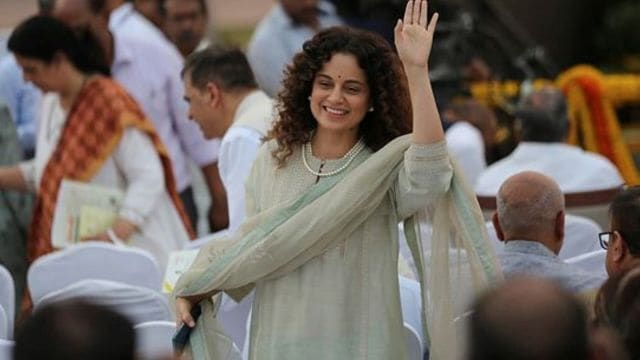
A disruptor seldom finds acceptance as a stabiliser simply because she is stereotyped as a challenger of the status quo, a rule-breaker and, therefore, never to be trusted as a rule-setter. The disruptor raises an alarm but is bleeped out, because everybody loves the comfort of familiarity. This sums up the phenomenon called Kangana Ranaut in popular culture, the disruptor who has pyrrhic value, TRP-yielding potential but never, it appears, credibility.
Yet, even when her disruption has been agenda-driven, it has also been about standing up for herself and owning her life on her terms. Many may be guffawing at Ranaut’s latest bloopers on podcasts or her failure to get her film released despite being a ruling party member but if there’s one thing Ranaut is good at it is in her ability to hold her own, no matter the obstacle ahead of her. Including admitting to her lack of political knowledge.
This is not unusual for somebody who has crafted her career trajectory completely on her own. From winning a beauty contest in Chandigarh to becoming an award-winning actor, Ranaut has had a tumultuous journey that was not blessed by privilege. She was an ordinary small-towner who struggled to find her footing in an industry where patronage and mentorship were exploitative, where gaslighting was rife and where she felt ill-equipped without godfathers. Talent she always had but it took the commercial success of Gangster (2006), Life In a Metro (2007) and Queen (2013) for her to get noticed. But once she was secure in her footing, she chose not to be submissive anymore. Unlike actors who choose political correctness or fall in line for stardom, she went all out, challenging a system that was based on dynastic privileges.
Much before #MeToo became a movement, she spoke of her abusive relationship with mentor Aditya Pancholi. But she did not play the victim card, admitting she had slid into a dark hole with her drug addiction and had found it difficult to extricate herself without resources. By calling out nepotism and challenging producer Karan Johar on his show as the quintessential example of inherited power, privilege and coterie politics, she set off a smaller movement for talent to be democratised in the rarefied chambers of Bollywood. Instead of textbook roles for success, she chose to push the envelope, staking her fortunes on flesh-and-blood characters, biographies and even an avenging catwoman in Revolver Rani (2014). The last was an example of how Ranaut aligned her own dualities, innocent and damaged, simple yet mysterious, not a bra-burner but an armoured warrior, raw and elegant because of it.
She took on the oligarchy of men, in the end outrunning them with an ease that challenged their custodial hold on her role-playing in society. If Alia Bhatt and Deepika Padukone have earned their rightful place as co-protagonists instead of being just window dressing, it would be unfair to not credit Ranaut for changing the standing of leading ladies.
Although the Bollywood cliques tried to keep her out, she prepared herself to survive despite them, completing a film-making course in New York, directing a film and floating her own production house Manikarnika Films. In the meantime, much before influencers became mainstream, Ranaut won a new constituency among the chatterati with her confrontational ways. That’s when she gravitated toward politics, using it to magnify her own appeal. She chose to be a right-wing nationalist, joining the BJP and taking on the Nehru-Gandhis, the Opposition or the farmers’ agitation. But fighting studio politics and realpolitik are not the same. She failed to calibrate herself to its demands. She didn’t realise that most parties, not just the BJP, endorse fringe players and rabble-rousers to build the perception game without dirtying their fingers. The moment such people become a liability, they are simply left out in the cold. With the delay in the release of her film Emergency, on the authoritarian phase of former Prime Minister Indira Gandhi’s life, she has realised that the party she represents cannot afford to upset Sikhs before the next round of state elections, especially after her stance against the farmers’ agitation.
What Ranaut needs to realise now is that politics is as much about misogyny as the film industry she rallied against. And chances are she has been co-opted for the wrong reasons. For somebody who hates stereotypes, she should stop playing into it.
rinku.ghosh@expressindia.com



